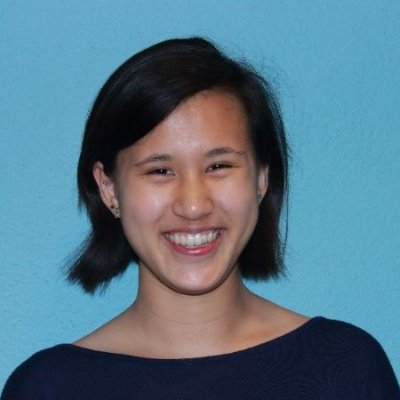The “Palliative Soul”: Music Therapy, End of Life Care, and Humanizing the Patient
DOI:
https://doi.org/10.15845/voices.v19i2.2841Keywords:
music therapy, end of life care, community, psychosocial care, spiritual careAbstract
This qualitative research project features semi-structured interviews on perspectives of humanistic care with Spanish physicians and therapists who have worked in or are familiar with music therapy and end of life care, disciplines that identify themselves as centering humanistic values in patient care. The purpose of the study was to have the thirteen music therapists and physicians elaborate on their perceptions regarding humanistic patient care and synthesize common elements from their interviews. A grounded theory approach was used to construct and derive themes among interviewees, and a narrative method of analysis was used to highlight salient philosophies of care and moments of conversation with clinicians. Building off of the interviews, this article explores how artistic engagement in end-of-life contexts sets up avenues for spiritual, psychosocial, and medical care. This “palliative soul” approach to patient care illuminates how health professionals may humanize patients at the end of life: leaning in to experiences of suffering with intention and an open ear, approaching patients in anticipation of their potential spiritual, emotional, and psychosocial needs, defining suffering, wellbeing, and effective clinical intervention through the patient’s voice, thinking actively about their own biases and shortcomings in care, and overall seeing the beauty and humanity in people both within and despite their arrival at end-stage disease. Lastly, this article discusses how even outside the context of end of life care, health professionals may broadly adopt the “palliative soul” and incorporate the needs of patients and their relational networks into clinical practice.
References
Ayres, L. (2008). The SAGE encyclopedia of qualitative research methods: Semi-structured interview. London: Sage Publications, Inc. http://dx.doi.org/10.4135/9781412963909.
Brennan, M. (2017). Life at the end of life: Finding words beyond words. Bristol, UK: Intellect.
Benito, E., Barbero, J., & Dones, M. (2014). Espiritualidad en clínica, una propuesta de evaluación y acompañamiento espiritual en cuidados paliativos [Spirituality in the clinic, a proposal for spiritual evaluation and accompaniment in palliative care]. Madrid: Síosí Punto Gráfico.
Clements-Cortes, A. (2016). Development and efficacy of music therapy techniques within palliative care. Complementary Therapies in Clinical Practice, 23, 125-129, https://doi.org/10.1016/j.ctcp.2015.04.004.
Daaleman, T. P., & VandeCreek, L. (2000). Placing religion and spirituality in end-of-life care. Journal of the American Medical Association, 19, 2514-2517, https://doi.org/10.1001/jama.284.19.2514.
Denzin, N. K., & Lincoln, Y. S. (2008). Strategies of qualitative inquiry. Thousand Oaks, CA: Sage Publications, Inc. pp. 203-206.
Hartzband, P., & Groopman, J. (2009). Keeping the patient in the equation—humanism and health care reform. New England Journal of Medicine, 361(6), 554-555.
Janaudis, M. A., Fleming, M., & Blasco, P. G. (2013). The sound of music: Transforming medical students into reflective practitioners. Creative Education, 4(6A), 49-52, https://doi.org/10.4236/ce.2013.46A009.
Kellehear, A. (2011). The study of dying: From autonomy to transformation. Cambridge: Cambridge University Press.
Kübler-Ross, E. (2009). On death and dying: What the dying have to teach doctors, nurses, clergy and their own families. New York, NY: Taylor & Francis.
Lee, J. H. (2016). A qualitative inquiry of the lived experiences of music therapists who have survived cancer who are working with medical and hospice patients. Frontiers in Psychology, 7, 1840, https://doi.org/10.3389/fpsyg.2016.01840.
McClean, S., Bunt, L., & Daykin, N. (2012). The healing and spiritual properties of music therapy at a cancer care center. The Journal of Alternative and Complementary Medicine, 18(4), 402-407, https://doi.org/10.1089/acm.2010.0715.
Newell, G. C., & Hanes, D. J. (2003). Listening to music: the case for its use in teaching medical humanism. Academic Medicine, 78(7), 714-719.
O'Callaghan, C. (2009). Objectivist and constructivist music therapy research in oncology and palliative care: An overview and reflection. Music and Medicine, 1(1), 41-60.
O'Kelly, J., & Koffman, J. (2007). Multidisciplinary perspectives of music therapy in adult palliative care. Palliative medicine, 21(3), 235-241.
Olarte, J. M. N., & Guillén, D. G. (2001). Cultural issues and ethical dilemmas in palliative and end-of-life care in Spain. Cancer Control, 8(1), 46-54, https://doi.org/10.1177/107327480100800107.
Patrick, J. H., Pruchno, R. A., & Rose, M. S. (1998). Recruiting research participants: A comparison of the costs and effectiveness of five recruitment strategies. The Gerontologist, 38(3), 295-302.
Schutt, R. K. (2011). Investigating the social world: The process and practice of research. Thousand Oaks, CA: Pine Forge Press. https://doi.org/10.1177/1943862109337135.
Van Roessel, P., & Shafer, A. (2006). Music, medicine, and the art of listening. Journal for Learning through the Arts, 2(1), 1-14.
Wlodarczyk, N. (2007). The effect of music therapy on the spirituality of persons in an in-patient hospice unit as measured by self-report. Journal of Music Therapy, 44, 113-122, https://doi.org/10.1093/jmt/44.2.113.
World Health Organization. (2018). WHO Definition of Palliative Care. Retrieved from http://www.who.int/cancer/palliative/definition/en/.

Published
How to Cite
Issue
Section
License
Copyright (c) 2019 Zoe Tao

This work is licensed under a Creative Commons Attribution 4.0 International License.
Articles published prior to 2019 are subject to the following license, see: https://voices.no/index.php/voices/copyright

